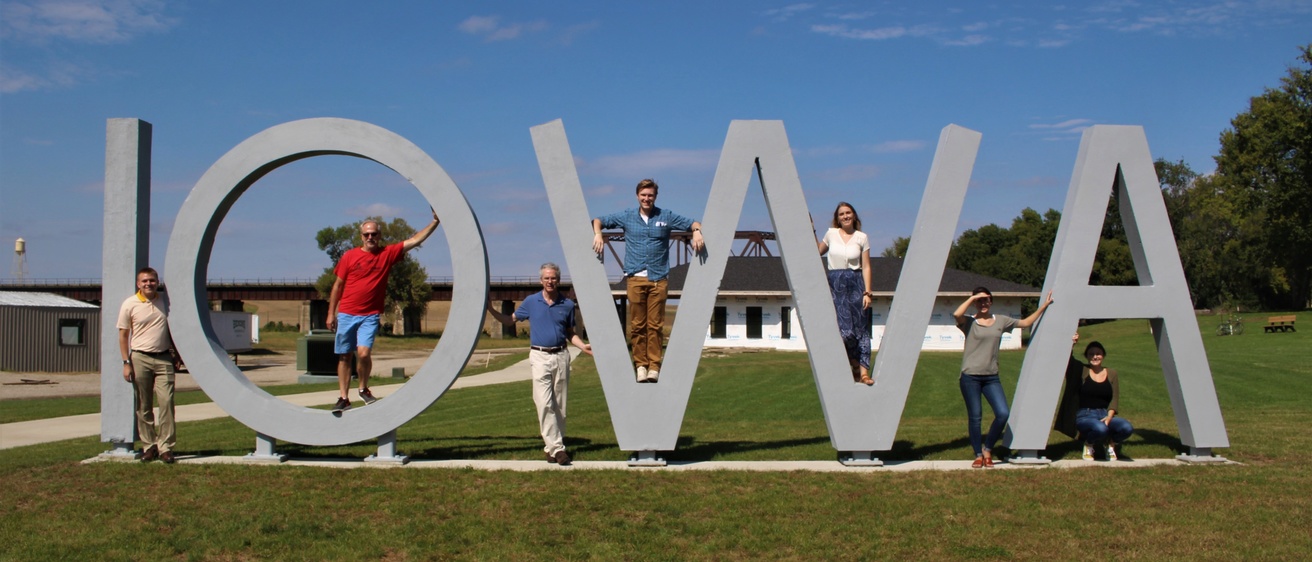Frank Durham, associate professor at the School of Journalism and Mass Communication, taught community engaged learning classes for years, but it wasn't until he worked with the Office of Community Engagement (OCE), and the Iowa Initiative for Sustainable Communities (IISC), that he formally connected with engaged teaching and learning.
Durham first partnered with IISC through his Advanced Strategic Communication course, which worked to develop a communication plan to recruit and retain residents in Manning, Iowa. Next, Durham attended OCE's Engaged Faculty Institute to dive deeper into the pedagogy of community engagement.
“I felt like I had found my ‘people,’ Durham said. "Although I have taught service-learning courses since 1990, I had not experienced a formal discussion on the topic. The workshops really resonated with me and validated my approach. I was very happy about the whole program.”
The Engaged Faculty Institute, sponsored by Iowa & Minnesota Campus Compact and OCE is a gathering of engaged faculty members that promotes collaboration, sharing of best practices, and training on how best to conduct service-learning courses, which require students to move beyond the passive role they experience in a traditional classroom as they engage real-life clients.
“Putting solutions together takes real cooperation," Durham said. "That is how my students get to experience the look and feel of professional communications management."
Durham typically invited clients to attend class whenever they wished to integrate their perspectives into the students’ understanding of the project, which gave students the opportunity to make sense of a client’s experience compared to the principles of communication management taught in class.
In the end, the students become conversant in the client’s business and related needs, while the client learned about students' formal thought processes.
"I get to enjoy seeing the dynamic develop," Durham said. "It’s a kick every time.”
Durham spent a semester planning ahead for classes that incorporate community engagement. He began shaping his spring 2020 community-engaged learning course in mid-August and applied ideas gained from the institute and other faculty members.
“Basically, I built the philosophy of community engagement into the nuts and bolts of the course to make sure that my students work hand-in-hand with our ‘live’ clients," Durham said. "Real-time problem-solving tops any traditional lecture-and-discussion course I can imagine.”
The institute inspired Durham to begin organizing a working group for faculty and staff interested in developing research articles based on data collected through service-learning work.
